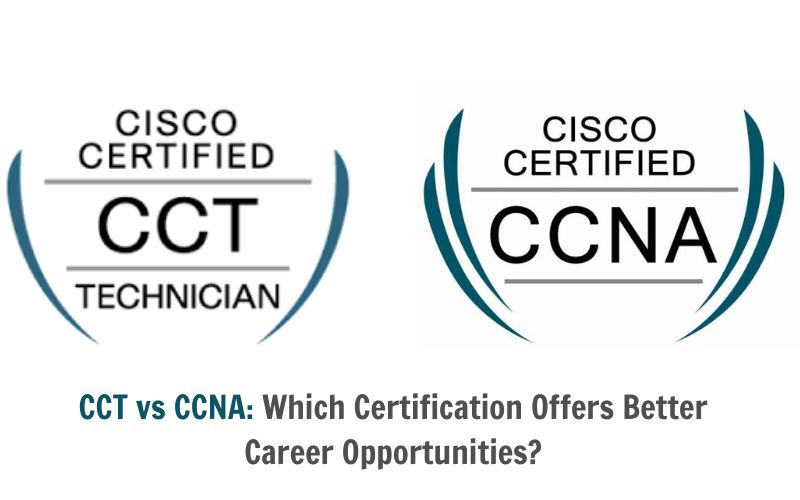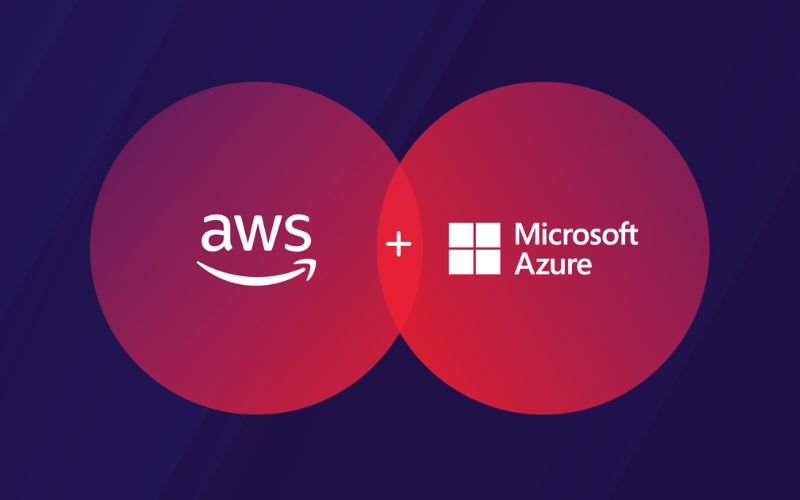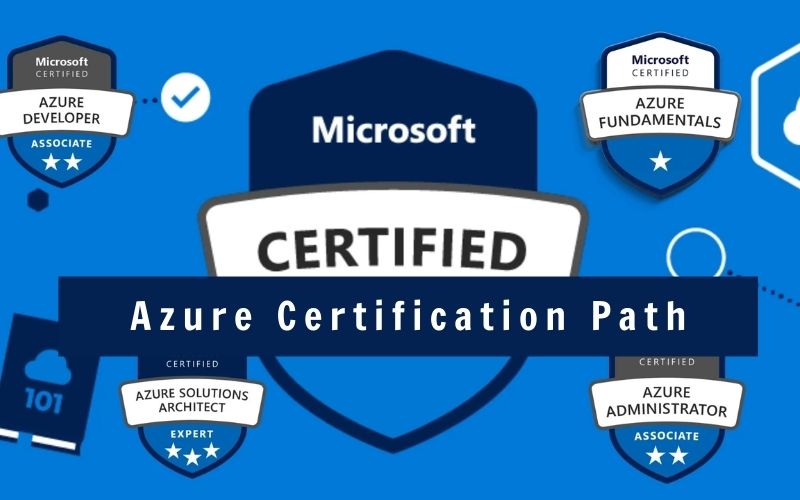Looking to take your cybersecurity career to the next level? Our comprehensive guide explores what should be the next cert after Security+ and offers valuable insights into popular certifications. Discover the prerequisites, exam structures, costs, and career benefits of each certification, and learn how to choose the right certification for your career goals. Whether you are a seasoned cybersecurity professional or just starting out, this IT Exams guide is the perfect resource to help you achieve success in your next cert after the Security+ journey.
What Is The Security+ Certification?

Before we can answer the question “What to get after Security+?” we must first grasp what the Security+ certification is. The non-profit trade organization CompTIA offers the entry-level cybersecurity certificate Security+. It is frequently the first information security certification obtained by an IT professional. You may discover more career chances as a more competitive applicant if you demonstrate to potential employers that you have the essential abilities necessary for a cybersecurity profession.
Passing the Security+ exam frequently necessitates a financial, time investment as well as Security practice test taking. Nevertheless, the return on your investment will be determined by your specific career objectives. Security+ skills and expertise are used in many occupations in the information security area. Here are some accessible Security+ job titles on LinkedIn that desire or need this qualification, as well as their average yearly compensation in the United States according to Glassdoor (as of November 2022):
- SOC analyst: $99,815
- Systems administrator: $81,628
- Vulnerability analyst: $102,504
- Database administrator: $84,213
- Cybersecurity consultant: $106,523
- Information security analyst: $89,669
- Information systems architect: $146,149
- Cyber threat hunter: $89,361
However, you may undoubtedly develop your skills by acquiring the next certification after Security+, which provides you with a solid basis for a career in IT security. If you are wondering what certification to earn after security+, CompTIA recommends pursuing the following cybersecurity career track after CompTIA Security+.
What Are Some Next Cert After Security+?

Intermediate-Level Cybersecurity Certifications
Following CompTIA Security+, cybersecurity professionals can advance to intermediate-level certifications such as CompTIA Cybersecurity Analyst (CySA+) and CompTIA PenTest+.
CompTIA Cybersecurity Analyst (CySA+)
The CompTIA Cybersecurity Analyst (CySA+) certification assesses your ability to apply network behavioral analytics to improve overall IT security. Among the technologies covered by the certification are packet sniffers, intrusion detection systems (IDS), and security information and event management (SIEM) systems.
As new threat intelligence approaches emerge, the security analyst job function has expanded in importance, making these skills essential for most businesses.
CompTIA CySA+ certification requires the following skills from cybersecurity analysts, application security analysts, threat intelligence analysts, and others:
- Use threat detection and intelligence methods.
- Data analysis and interpretation.
- Determine and address possible flaws.
- Make preventative recommendations.
- React to and recover from occurrences in a timely and efficient manner.
CompTIA PenTest+
CompTIA PenTest+ focuses on the offensive side of security through penetration testing and vulnerability assessment, whereas CySA+ focuses on the defensive side via incident detection and response. It includes launching system assaults as well as detecting and managing vulnerabilities.
CompTIA PenTest+ is intended for penetration testers and vulnerability assessment analysts who scan, find, exploit, report, and manage network vulnerabilities.
CompTIA PenTest+ evaluates a wide range of skills, including the following:
- Define and determine the scope of a penetration testing project.
- Recognize your legal and regulatory responsibilities.
- Apply appropriate vulnerability scanning and penetration testing tools and procedures, and then assess the results.
- Produce a written report explaining potential repair techniques, effectively communicate results to management, and provide practical advice.
Because Security+ evaluates an IT professional’s knowledge, skills, and abilities (KSAs) after two years of cybersecurity fieldwork, and CySA+ and PenTest+ evaluate three to four years of cybersecurity fieldwork, the progression from CompTIA Security+ to CompTIA CySA+ and/or CompTIA PenTest+ makes sense.
The most recent version of PenTest+ (PT0-002) was published in October 2022. More ethical hacking concepts, vulnerability scanning, and code analysis are included in the updates, as are improved pen-testing approaches for the most recent attack surfaces, such as the cloud, hybrid environments, and web apps.
Read more >> CompTIA Security+ Validity: How Long Does This Last?
Advanced-Level Cybersecurity Certification
CompTIA Advanced Security Practitioner (CASP+)
IT workers with 5 to 10 years of experience can obtain the CompTIA Advanced Security Practitioner (CASP+) certification to demonstrate their knowledge of cybersecurity. CASP+ is the pinnacle of cybersecurity credentials, and it includes performance-based questions.
It is intended for professionals who like to get their hands dirty with corporate security, incident response, and architecture rather than just managing cybersecurity policies and frameworks.
Senior security engineers and security architects are the most generally identified job positions, although CompTIA CASP+ may also help digital forensics analysts and network enterprise architects validate their skill sets.
CASP+ requires a digital forensic analyst, for example, to be able to help in the creation of corporate forensics policy, assess the security implications of forensics results, and undertake compromised system analysis.
A network enterprise architect, on the other hand, must be capable of examining existing networks and determining the security components, concepts, and architectures necessary to meet regulatory cybersecurity compliance criteria. CASP+ assessed this information.
CASP+ verifies a wide range of abilities, including the following:
- Architect, engineer, integrate and deliver security solutions across complicated environments to support a resilient enterprise.
- Utilize monitoring, detection, incident response, and automation to actively support ongoing security operations in a corporate environment.
- Consider the use of cryptographic technologies and approaches to apply security concepts to cloud, on-premises, endpoint, and mobile infrastructure.
- Consider the consequences of governance, risk, and compliance requirements across the firm.

Some Others Cybersecurity Certification
Certified Information Systems Security Professional (CISSP)
The Certified Information Systems Security Professional credential is commonly recognized as the industry’s gold standard. The job opportunities it provides are well worth the time it takes to study and obtain.
The CISSP is a well-known and sought-after cybersecurity certification, but it is not for inexperienced professionals. It requires at least five years of paid, full-time industry experience, as well as specific expertise in two areas of the (ISC)² CISSP Common Body of expertise. Furthermore, despite the fact that the (ISC)² CISSP comprises only one test, it is designed to last six hours.
Because it requires both a tough test and on-the-job experience, hiring managers typically consider the CISSP as a benchmark. A CISSP certification allows you to demonstrate that you understand how to build, design, and deploy information security systems in the workplace.
The CISSP is a game changer that will allow you to make more money. It shows your employers that you have a thorough grasp of the information security industry and are aware of all of the most common hazards.
Try some samples of CISSP practice test questions here!
Certified Ethical Hacker (CEH)
The Certified Ethical Hacker certification is intended for professionals who wish to learn how to detect and exploit vulnerabilities in network systems while remaining ethical. The certification covers a wide range of subjects, including network security, ethical hacking, and penetration testing. The certification’s goal is to teach professionals how to think like malicious hackers in order to detect and patch vulnerabilities before they can be exploited.
To obtain the CEH certification, applicants must pass an exam covering these areas and follow an ethical code. The certification is worldwide recognized and regarded, and it may assist workers demonstrate their cybersecurity abilities and knowledge.
CEH certification is a valuable accreditation for professionals interested in ethical hacking, network security, or penetration testing. Employers place a high value on individuals who can assist protect their networks and systems from harmful intrusions.
Try some samples of CEH practice test questions here!
Certified Cloud Security Professional (CCSP)
The Certified Cloud Security Professional certification is intended for cloud computing professionals who desire to specialize in cloud security. Cloud data security, cloud architecture, and cloud operations are among the subjects covered by the certification. The certification’s goal is to give professionals the skills and knowledge they need to create, deploy, and manage secure cloud computing infrastructures.
To get the CCSP certification, applicants must have at least five years of experience in information technology, with at least three of those years spent in information security, and pass an exam that assesses their knowledge of these issues. The certification is worldwide recognized and regarded, and it may assist professionals demonstrate their cloud security abilities and knowledge.
The CCSP credential is appropriate for professionals interested in cloud security, risk management, and compliance. Employers who require personnel with strong security expertise to safeguard their cloud environments place a high value on it.
Try some samples of CCSP practice test questions here!
Cisco CCNA Security certification
Cisco is a big dog in information technology, with a substantial market share of corporate enterprises employing its products. The CCNA Security certification is an intermediate-level certification that consists of the CCENT ICND1 100-105 and CCNA Security 210-260 IINS examinations.
When you earn your CCNA Security certification, you demonstrate that you understand how to protect Cisco networking gear, which might lead to a number of IT security employment. Read our post on the distinctions between CCNA security and Security+ to have a better grasp of this.
Cisco CCNP Security certification
If your firm employs Cisco products, the next logical step in your certification route is CCNP Security. The CCNP Security exam has four parts: 300-208 SISAS, 300-206 SENSS, 300-209 SIMOS, and 300-210 SITCS.
If you use Cisco products on a daily basis, the CCNP Security certification will place you on a strong career path with incredible earning potential.
GIAC Security Expert (GSEC)
The GSEC: SANS GIAC Security Essentials certification is another entry-level certificate that shows you comprehend information security terminology and concepts and is prepared to perform hands-on security activities.
Security Essentials is a single test that, while more expensive than Security+, continues to provide the basis for your security career. Although it is rather expensive ($2,499 USD), this certification is an excellent option if you want to validate your experience and comprehension of information security.
Certifications in information security are vital for demonstrating your abilities, capabilities, and comprehension. The GSEC is an excellent qualification to have when a potential employer goes through your resume or CV.
What To Consider When Compare Cybersecurity Certifications

When evaluating different cybersecurity certifications, it is crucial to take into account multiple factors among certifications.
Structure and format of exams: Some certifications may involve a single exam, while others may necessitate multiple exams or practical assessments. Additionally, exam conditions may differ, with some allowing reference materials, while others are closed-book or require hands-on experience.
Prerequisites and eligibility requirements: Certain certifications may mandate a minimum number of years of field experience, while others may require specific educational or professional qualifications. Thoroughly reviewing these requirements is essential to determine which certifications align with one’s career goals and level of experience.
Costs and time commitments: Some certifications may involve expensive training courses or study materials, while others may have lower costs or even be freely accessible. Furthermore, the amount of study and preparation time required can vary significantly between certifications, with some demanding a significant investment of time and effort while others can be completed relatively quickly.
Career benefits and opportunities: Certain certifications carry high industry recognition and can facilitate career advancement and increased earning potential. Moreover, specific employers or industries may require or highly value certain certifications. Conducting thorough research and taking these factors into consideration enables professionals to make informed decisions about which certifications to pursue.
How To Choose The Right Certification
With so many qualifications to pick from, it may be difficult and complicated to select the ideal certification for you. So, in this section, I will explain how to choose the appropriate CompTIA Certification and career path.
As you can see in the preceding section, CompTIA launched the CompTIA Infrastructure Career Pathway in early 2018. This new career pathway program better connects CompTIA certifications with the real-world abilities required by IT professionals to succeed while managing and maintaining IT systems. Furthermore, CompTIA has made it easier by arranging the certification examinations in a sequence so that you may earn them as your expertise grows. Once you get one certification, you may concentrate on the next exam in that category. Then, depending on your professional objectives, you can take as many examinations as you need.
Read more >> CCNA Security vs Security+: Which Certification Is Right For You?

What Should You Do After Obtaining The Next Certs?
Without a doubt, finding work!
After receiving your certification, you’ll most likely be ready to begin your new career. If you already work for a business that offers security administrator positions, make higher management aware of your increased qualifications in case a job becomes available.
Whether or whether you are currently employed in information technology, update your profile with your most recent qualifications. What are the odds? It’s possible that it will result in a large employment offer. At that point, you will be ready to start seeking a job. Here are a few options for seeking work:
- Network: According to a recent survey, networking accounts for 80% of all job chances. Make an attempt to contact folks you know to discover if any changes have occurred. Join a local technology professional network to meet new people and hear about job openings before they go public.
- Recruiters: Many technology companies use recruiters because they specialize in finding technical professionals. Find a recruiter in your region who specializes in IT employment.
- Job Boards: Once an opportunity is posted online, it may become competitive. Examining job boards, on the other hand, might provide you insight into which firms are aggressively expanding their IT teams. By networking, you may be able to reach out directly and obtain a job.
- Local Job Fairs: Going to a local job fair is a great way to network with local businesses. Even if they aren’t searching for IT work, you might be able to establish a relationship that will allow you to acquire entry to a company on your want list.
FAQs

Do I need to take these certifications in order? Do I need to take all of them?
No. This is a suggested path, although it is not required. Your journey will differ based on your employment requirements or hobbies. In general, the pathway follows a hierarchy of IT security abilities; each certification builds on the skills learned in the prior one.
Can I take these exams with no IT or cybersecurity experience?
Yes, although we encourage you to have at least some hands-on experience before taking any of our certifications. (Each has its own set of suggestions, which may be found in the Exam Details section of the certification homepage.)
However, hands-on experience does not have to be on the job. It might refer to any hands-on activity, such as practical experience earned during a class or through self-study, such as using approved CompTIA training products. CompTIA creates these solutions from the ground up and extensively tests them to ensure comprehensive coverage of exam objectives. Then, use what you’ve learned by assisting friends, family, or local organizations with their IT and cybersecurity challenges.
CompTIA certificates reflect contemporary employment positions for IT professionals, so whether you have job experience or not, it makes sense to get these certifications to confirm your knowledge and hands-on abilities.
Do these certifications replace on-the-job experience?
You recognize the benefits of on-the-job experience if you are an IT professional or an employer. IT certifications are a good place to start, but they do not replace on-the-job training. You have the best of both worlds if you have CompTIA certifications and on-the-job experience.
The CompTIA Cybersecurity Career Pathway is suggested for IT professionals, employers, teachers, and students. Depending on your personal experience, employment needs, or course of study, you can begin wherever it makes sense. The pathway is unique in that it provides vendor-neutral capabilities for IT workers to attain cybersecurity expertise from start to finish.
Should I get Network+ after Security+?
Is Network+ higher than A+?
Final Words
We hope that you can choose the next cert after Security+ based on reading this page. Wish you do well in your hunt for the appropriate employment in the next period.
More important, continue to study even after you have landed the job of your dreams. To remain competitive, you will most likely need to keep your certifications up to date because your skills might soon become obsolete.
[Sassy_Social_Share]


